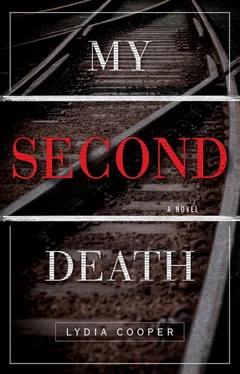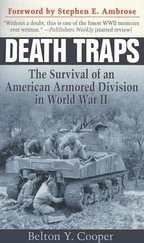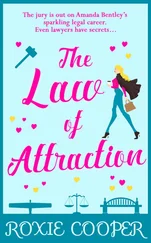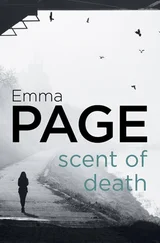He goes into his office, unloads his briefcase and books, and then his feet tread upstairs, each step firm, irrevocable. The crank of a spigot. Water thrumming in the old pipes. He comes down a few minutes later, buttoning a beige cardigan. He hitches his trouser legs and sits, leaning for the basket of rolls.
Dave claps his hands once and then cups them around his mouth like a trumpet. “Birthday present time!”
Dad frowns but withdraws his hand.
Dave pushes his chair back and goes over to the sideboard where a small collection of gifts in shiny silver and blue wrapping paper sits. He picks up the largest box and turns it, finds a card by the large bow. His eyebrows go up and his face creases into glee. He lifts his eyes to us and says, solemnly, “For my baby boy.”
Stephen’s ears turn pink.
“Oh shush,” Mom says. “Just give it to him.”
In my head I play through a Chopin nocturne. My fingers move across my thighs, picking out chords. This is taking too long. I snap my fingers to get Dave’s attention and point to a card lying on top of the other presents. “That green card is mine. Give him that one next.”
Dave pushes out his lower lip. “Patience, grasshopper. You can’t rush me. I have a meth od.”
I roll my eyes. “The silver present is Dad’s. It’s a watch. The other card is yours. God knows what you wrote in it. It’s cash or a gift card, but my bet is cash. Now give him the green card, okay?”
Dad clears his throat. “Michaela.”
“It’s okay,” Stephen says. He shrugs and reaches for Mom’s present. “It’s not like I didn’t know. No offense, but none of you are, like, creative geniuses when it comes to gift giving.”
Mom says, “You don’t know what mine is.”
Dave snorts like he’s going to laugh, but swallows the sound.
Stephen bends his head to open Mom’s present. He slits the tape, unfolds the paper without tearing it, and sets the ribbon neatly by his elbow. He is careful and slow.
Dave picks at his fingernail and shifts his weight and finally says, “ God , boy. I’m evolving.”
Stephen smiles a little. “Don’t rush me. I have a method.” He says it softly, almost absently, and Dave makes a face. But I am impressed with my little brother. It’s not easy to upstage a man who steals the spotlight in a family of actors.
Mom’s gift is sweaters.
Stephen looks surprised and lifts out the one on top. “This is awesome, Mom. Thanks!”
Mom always gives clothes. It’s the only gift she gives. For all the years that Dave lived in New York, she sent him a box of ties and button-down shirts on his birthday and sweaters for Christmas.
“I’m glad you like them,” she says.
Dave brings over the other present and the cards.
I say, “I got you iTunes.”
“And I ,” Dave says, “gave you cash .”
Stephen reaches for the card on top of the pile Dave hands him. It’s Dave’s card. He pulls out a twenty. “Hey, great! Thanks!”
“He’s so easy to please.” Dave looks at Aidan. “It’s cute .”
“Dave, honey,” Mom says.
Stephen’s mouth tightens but then he relaxes and smiles at Dave.
Dad clears his throat. “If the gift-giving is done, may I suggest we eat?”
Stephen pushes his cards to the side and puts the clothes and watch on the floor near his chair. “Thanks, everyone.”
Mom gets up to bring in a bottle of wine.
Dave turns to our younger brother with eyes shining like a saint who has seen God. To anyone else his glittering teeth and eyes would mean genuine interest, but I recognize the latent cunning in his wide smile, his elegant, joy-pitched voice.
“Well, this is nice. The family, together at last. Why, the last time I was home for your birthday, you were so little! And all you wanted — what was it you wanted?”
Dad clears his throat. “David.”
Dave sighs and sits back in his seat, linking his fingers over his chest. “I remember now. It was a puppy. Remember that? You wanted a new dog so bad, you cried for weeks .”
Stephen’s eyes flick from Dad to Mom and then to me. Mom says, “Well, look how fast those rolls went. There are more warming in the oven.”
Aidan watches her leave and then turns an inquiring eye on Dave. And that as much as anything makes me decide to play along.
I smile at Dave and say to Stephen, “What’s the matter, kid? Still pissed off I ate your dog’s liver?”
A sudden silence hovers over the table.
Mom comes into the room. I turn and reach into the basket to get a roll. Her fingers brush mine and I jerk my hand away. She catches the roll and sets it on the edge of my dish.
Aidan’s eyes are fastened on my hand as if mesmerized by that violent instinctive reaction to my mother’s accidental touch, as if the gesture has startled him into recognizing some darkness lurking behind the awkward conversational gambits.
Dave turns to Aidan. “She ate the family dog,” he says. “This was when she was, like, twelve. We come into the kitchen because we smell something burning, and there’s Mickey frying a piece of meat at the stove. We go, What’s that, Mickey? And she says, Buster’s liver.”
“Buster,” I explain, “was the dog.”
Aidan looks down at the red sauce swirled across the dinner plate that Mom hands him.
She says, “Did everyone get pasta?” She smiles like a deaf mute.
“Mother, for God’s sake. You’re throwing us off. We’re performing for our guest, you see.” To Aidan, I say, “I’ve got APD, not Down syndrome. They act like I’m a moron.”
Aidan lifts his head.
“APD is antisocial personality disorder,” Dave says.
“Right. Anyway, that’s the final diagnosis. All those shrinks, and that’s what they end up with. It’s supposed to be better than schizophrenia, which is what they first thought I had. But the way I look at it, Joan of Arc was a schizophrenic and she managed to get canonized. Whereas APD is what most serial killers have. So go figure, right? Not much of an improvement as a diagnosis.”
Aidan’s eyes flick to my mom, then to my dad, who is picking industriously at his pasta. Aidan’s mouth looks strained.
I smile. And relent to social pressures, the shade of Emily Post whispering in my ear. “But I’m not a serial killer. I just dislike people.” I incline my head in Dave’s direction. “The dog thing wasn’t that bad. He can explain the difference.”
Dave says, “Hundreds of people have APD and most of them grow up to be perfectly ordinary citizens. Accountants and janitors and doctoral students studying medieval literature, just for example.” He winks at me. “Serial killers have other traits in addition to being antisocial. For example, a lot of serial killers start off killing animals, you know, like gutting cats or killing a dog and eating its liver.”
I rip off a flaky bit and blow on it, then put it in my mouth. “This is terrific, Mom.”
She smiles a little. The muscles by her mouth contract, at least. “I’m glad you like it, honey.”
“But Mickey,” Dave says, “as far as we know, didn’t kill Buster.”
I tear off another piece of croissant. “Bingo. I didn’t kill Buster. He was already dead. Died of old age. He was stiff as a board when I cut him open. See the difference? The fine distinction?”
My father’s lips are pale. He has surrendered his fork and knife on his dish and sits with his hands balled beside his plate, skin bleached white in patches around his nose.
“But that’s old history.” I look away from him. “I don’t mutilate animals any more, living or dead. And I don’t even like meat that much. I mean, I might have a hot dog for lunch, but that’s it.” I don’t explain that hot dogs are made of spleens and gristle and tendons mashed up by huge metal teeth, churned into a lumpy pinkish mash of semi-liquid ooze. Normal people eat hot dogs. Normal people don’t think about hot dogs. As far as I can tell, that’s the difference between normal people and me. Normal people also do not particularly like other people. Take the way Dad’s eyes are burning into the table right now. But normal people don’t admit to themselves how violent their fantasies of murdering their fellow humans can be. This is why I don’t consider myself the victim of a disorder, the carrier of a genetic disease. No. Me, I’m just radically honest. Someday they will erect statues in my honor.
Читать дальше












